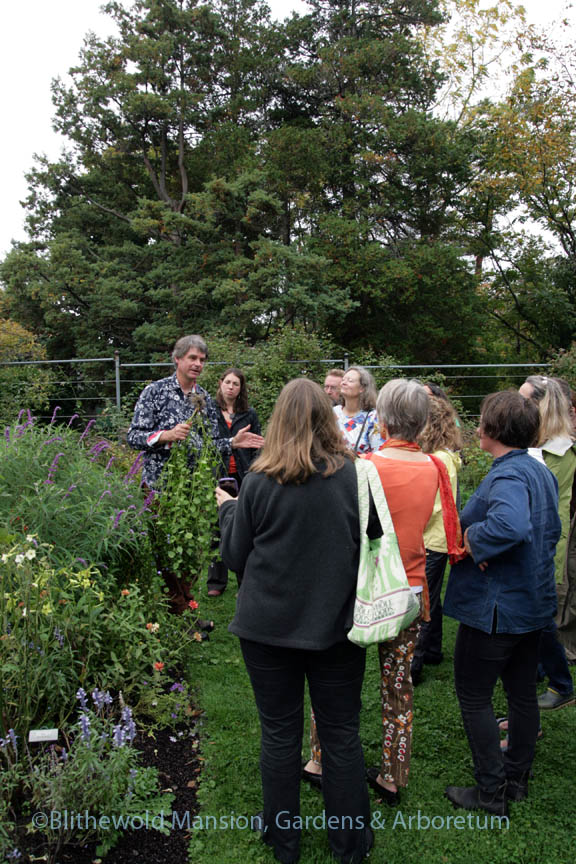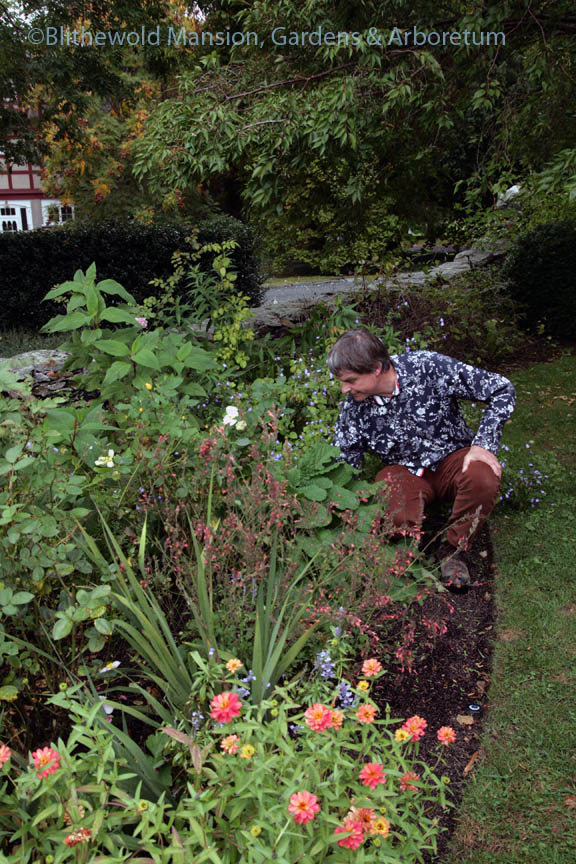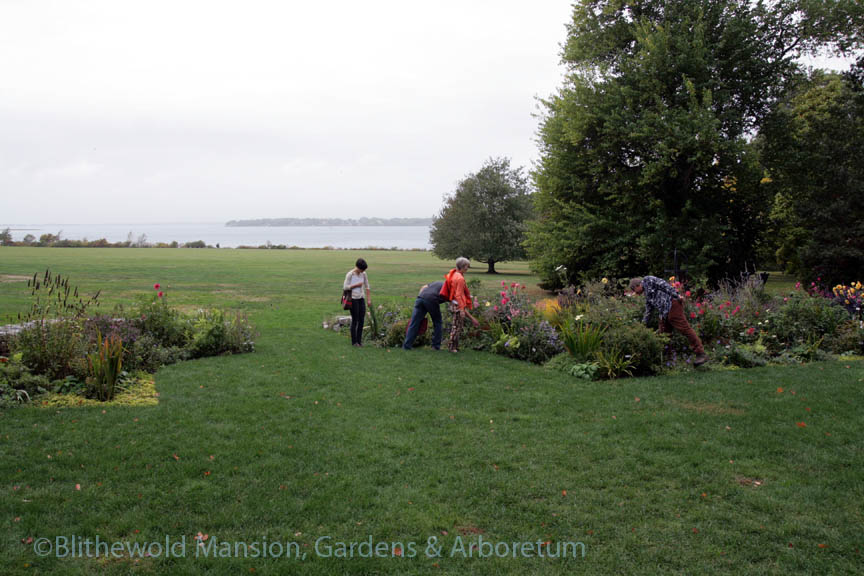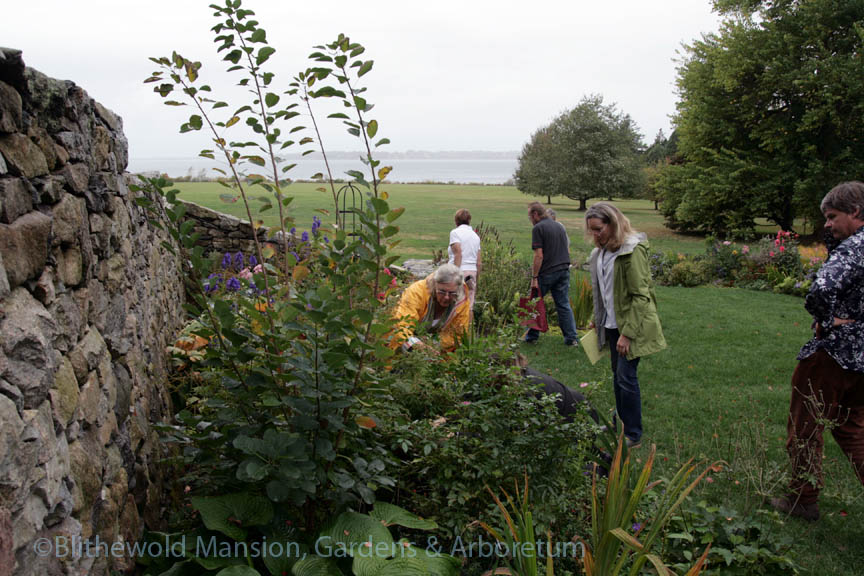A rabbit’s eye view with Noel Kingsbury
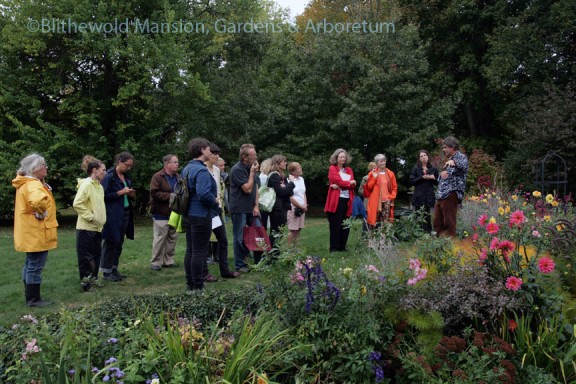
We are so lucky that yesterday’s rain held off just long enough to take a ground-level tour of Blithewold’s gardens with British garden designer/plantsman/author, Noel Kingsbury. He showed us, plant by plant, exactly what to look for to help predict how different plants will behave in our gardens.
He reminded us that plant growth falls along a wide spectrum between black and white. We might notice, for instance, that some perennials and shrubs are better at producing clonal growth than others. Have you ever wondered why some perennials are considered “short-lived?” Poke around the crown, right at root zone of a heuchera, or an echinacea and you’ll find very few, if any, side shoots with attached roots. But many short-lived perennials, such as echinacea, are excellent flower and seed producers. And in the case of heuchera, trial and error along with careful observation should teach us that their side shoots are more likely to root into and spread through a fluffy layer of mulch than packed soil. Observation can inform us about which plants are particularly tolerant of stress — whether it’s a lack of moisture, light, or nutrients. Those that have adapted to their home environment by conserving resources may be evergreen, summer dormant, and/or early blooming. Competitive plants will use all the resources they can get to crowd out their neighbors. And because of the way competitors hoard resources, says Noel, less fertile soil will support a greater diversity of plants. That goes against most gardeners’ grain but I admit, bodes particularly well for my garden at home…
Of course, learning about plants’ native habitat too can teach us a lot about the kinds of conditions they can tolerate in our own gardens. For example, around here, we are likely to treat (and dismiss) delphinium as annuals because they often don’t come back. We might assume that they’re not winter hardy but in fact, they’re from Siberia and perfectly hardy to about zone 2. It’s our hot, humid summers and relatively mild winters that do them in.
Noel’s garden designs, based on his studies of ecology, are naturalistic and naturally low-maintenance. And the examples he showed us of his, Piet Oudolf’s and others’ gardens, are designed to stand the test of time and environmental conditions with relatively little interference. Here at Blithewold we like to play musical perennials and change things up every season but the more we observe and learn about to expect from our plants, the better even our constantly shifting combinations will stand the test of seasons too.
How well do you know the plants in your garden?

